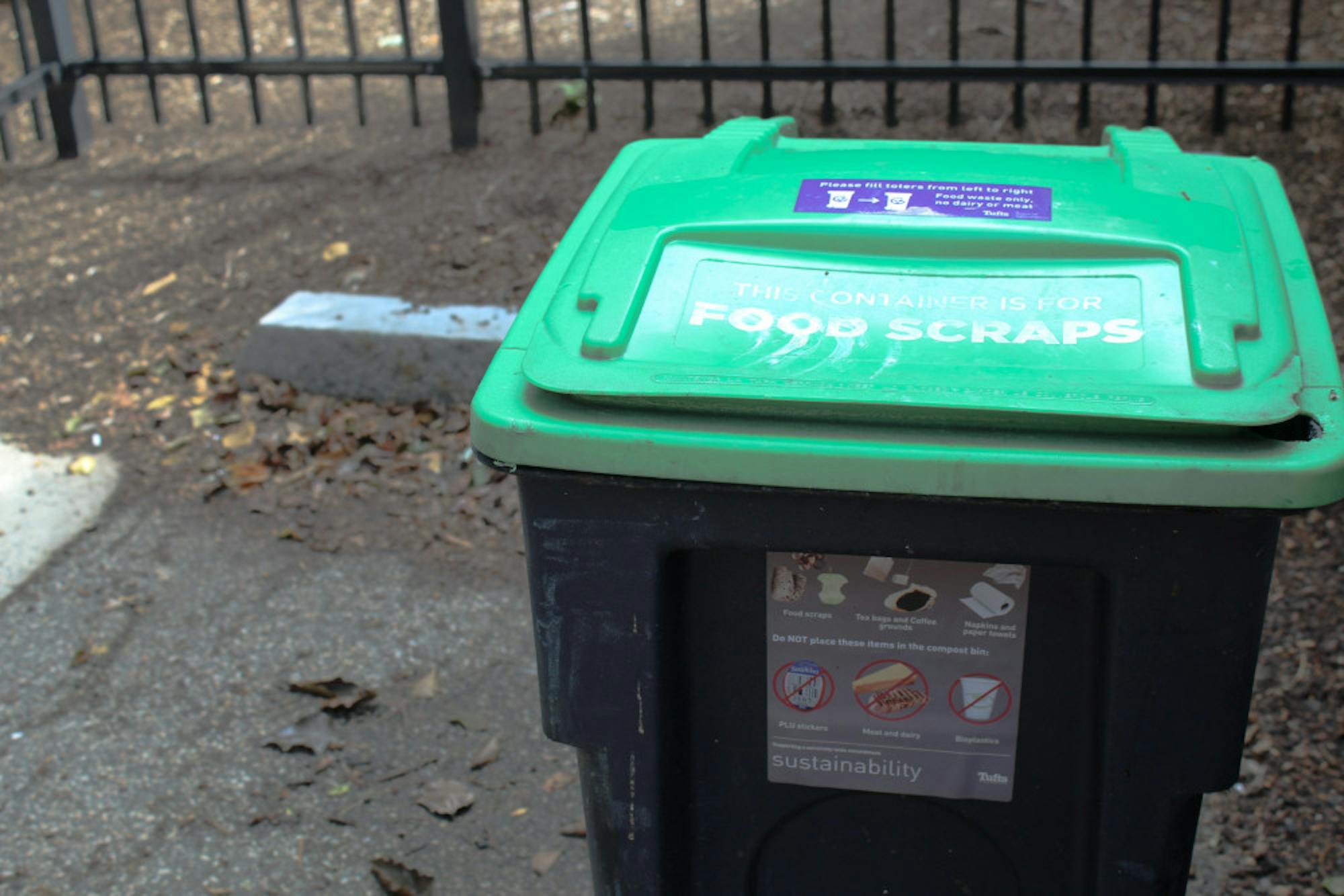The Massachusetts Department of Environmental Protection recently added textiles and mattresses to the list of materials banned from waste disposal and further lowered the threshold on banned commercial food waste to include facilities generating more than half a ton per week. Tufts will need to expand its preexisting textile and food waste collection programs in order to adhere to the bans as well as revise its mattress disposal procedures.
Massachusetts has implemented statewide waste disposal bans since the early 1990s on items such as cardboard, paper, leaves and other easily recyclable items. The Nov. 1 ban on textiles and mattresses is the latest expansion of these restrictions, which are aimed at increasing recycling.
John Fischer, branch chief of the Commercial Waste Reduction and Waste Planning Division at the Massachusetts Department of Environmental Protection, explained the scope of the textile ban and the recovery process that will replace disposal.
“So, what we mean by textiles includes clothing, but it’s much broader than that. It includes sheets, linens [and] towels,” Fischer said. “As far as the whole textile recovery infrastructure and what’s acceptable, it’s really anything that’s clean and dry. Even if it’s torn, even if it’s worn or stained, those materials still have value.”
Fischer also discussed why the department instituted the textile ban.
“In our most recent master plan, which we published last fall, we wanted to focus on the materials remaining in our trash that had the greatest value and the greatest recycling potential and textiles are one that rise to the top,” Fischer said. “We estimate that statewide we dispose of more than 200,000 tons of textiles a year in the trash — that represents about 5% of our overall trash … [even though] 95% of [textiles] are recoverable.”
Tufts and other Massachusetts universities will be impacted by this plan, though there are several resources from the state to help affected entities comply. One such program, RecyclingWorks Massachusetts, runs a hotline and provides no-cost technical assistance to assist businesses and institutions in formulating a proper recycling program. Fischer also recommends having drop-off bins around campus for the disposal of recyclable items and for off-campus students to know the location of a local drop-off bin.
Massachusetts has processes in place to enforce the ban. The Department of Environmental Protection randomly checks trash loads at solid waste facilities for banned materials. The department then backtracks these loads in an attempt to identify which business or institution was the source of the banned material.
“We're looking for significant amounts [of banned materials],” Fischer said. “When we see a load like that we document it, we take pictures, we identify the trucks that took it, and the hauler, and then for each load we look at, we get what's called the scale ticket number, a unique identifier for that load. So, we can go back to the waste hauler, and we can get information from them about where they collected from and look to identify the source material and then we ensure enforcement.”
Tufts released a draft of a report responding to the new ban, which in part indicated that mattresses will no longer be incinerated and will instead be transported in a covered container to a recycling site. Tufts’ recycling and waste reduction coordinator, Kaitlyn Reed, commented on the effects of the ban on the Tufts community.
“Operations will have to change the waste flow for some of our items,” Reed wrote in an email to the Daily. “At the undergraduate campus we already have extensive textiles recycling so as long as students take their textiles there, there isn't much of an impact on them. Expect to see more places for food waste disposal on campus. Students will need to become more familiar with and accepting of taking the time to separate out their food waste from trash and recyclable items.”
According to Sierra Moll, a Tufts Eco Rep, students can access textile recycling bins at several locations across campus. These include outside Houston Hall, Lewis Hall and 98 Professors Row and inside the Lower Campus Garage and Tufts Facilities building.
“[After the ban], our textile recycling program will stay in place, and I bet it will get utilized even more in the future now that there is a law in place that requires textile recycling!” Moll, a sophomore, wrote in an email to the Daily.






